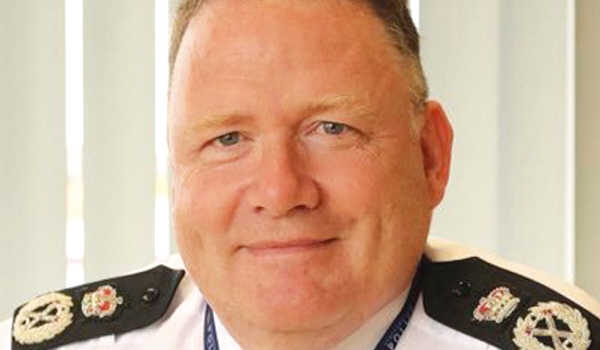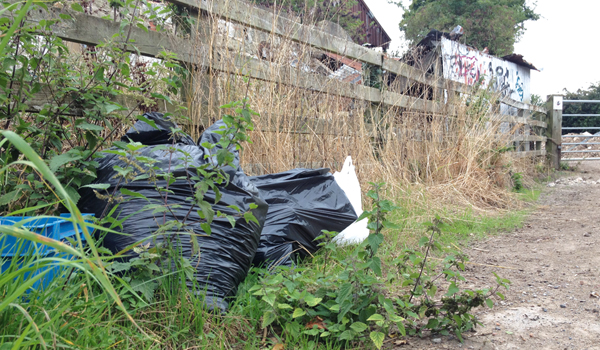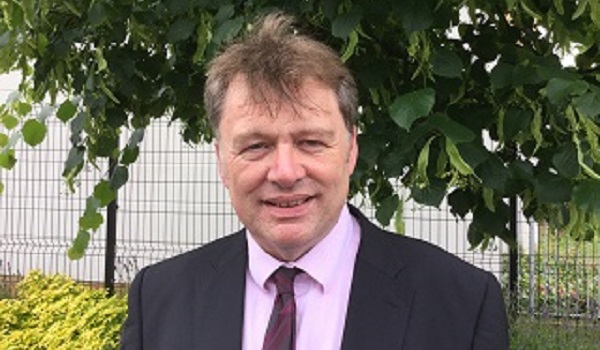Preparing resilience
This year’s Strategic Command Course showed just how quickly senior officers need to learn to lead major crises. Police Professional spoke to the course director and participants about the benefits provided by the course, particularly as the coronavirus outbreak puts its lessons to the test.
The Strategic Command Course (SCC) marks the point in a chief officer’s career when they are prepared for the step up from senior to executive level, and the major challenges they potentially face. However, the 2020 SCC will be remembered as the course that ended prematurely so participants could return and immediately take on the policing response to arguably the most challenging peacetime event the country has ever faced.
The course is a requirement for advancement to chief officer level and participants knew at the outset they would be applying for promotion when they returned, eventually facing tests of their personal and professional resilience.
However, as the coronavirus’s impact around the world grew at the same time as the SCC was taking place – between January and March – it became clear these challenges would come sooner than they originally anticipated when they applied to attend.
As the course neared its conclusion, organisers became increasingly concerned that UK participants were needed back in force while international students were facing difficulties returning back to their countries.
Then government advice on social distancing meant the usual end of course ceremonies, including dignitaries and families attending the graduation, were no longer viable. And on March 16, the Prime Minister announced a raft of measures to limit movement, together with plans to give the police powers to enforce future restrictions.
As participants had already passed all the assessed elements of the course, a hastily arranged graduation ceremony took place and within a day, course leaders and graduates returned to force and had taken on Gold or Silver command of the coronavirus crisis within their areas.
Gold commander
For example, Deputy Chief Constable Rachel Kearton ended a secondment to the course as syndicate director on March 17 and the following day began a new role as multi-agency Gold commander for the whole of Suffolk and Norfolk.
Course director, Chief Constable Gareth Morgan, told Police Professional that many of the contributors to the course emphasised the need for a network of colleagues beyond their force boundaries that can provide support in times of emergency, such as the current coronavirus crisis, networks that are often created during the SCC.
The day the course ran table-top exercises on critical incidents was the same day the coronavirus first became a major news item and coincidentally the national lead for civil contingencies, Deputy Chief Constable Paul Netherton, attended the course. Mr Netherton explained that this kind of emergency was one of the issues that had been planned for and emphasised the need for a broad network to support decision-making when such incidents arise.
One week on from the premature end of the course, Mr Morgan said he has already heard from participants who are making use of the content and the network the SCC provided.
“You should take confidence from what you bring to the programme, what you learn here and take confidence and conviction that you are able to lead in what are some of the most challenging of times, but remember you are not alone and use your network,” he explained.
The coronavirus crisis will require extensive partnership approaches and having external partners involved ensures this is not forgotten, he adds.
This year’s course had representatives from the Home Office, RAF, Fire and Rescue Service, Her Majesty’s Revenue and Customs and a chief executive of an office of a police and crime commissioner (PCC), as well as international policing delegates from France, Ireland and the Caribbean.
In his first year as SCC director, Mr Morgan reviewed the curriculum to ensure it was as current as possible in terms of the strategic and operational issues the service is facing, ensuring the latest demands such as cybercrime and child sexual exploitation and abuse are covered.
Priority challenges
“Having the chief officers who are responsible for policing domestic violence and rape investigations, or developing policies and reforms on disclosure, showed how there are great people leading these priority challenges,” he said. “A full day discussing the most up-to-date threat assessment from serious organised crime was invaluable and for many of the participants, it was the first time they have been exposed to such conversations.”
Leaders of the most recent critical incidents discussed how they took charge of high-profile events. For example, Deputy Chief Constable Rachel Swann explained how she chaired the strategic coordination group for the Whaley Bridge Dam collapse and spoke openly about how leading in the public arena can impact personally.
Most Friday mornings, Mr Morgan arranged for chief constables to present their personal reflections on leadership, including aspects that had gone well and some that had not. These were “extraordinary pin drop moments” and a privilege to witness, he said.
Enthralling sessions included presentations from Kathryn Stone, the Parliamentary Commissioner for Standards, and chair of Healthwatch England Sir Robert Francis QC, who has chaired several high-profile medical scandal inquiries, including the failures at Stafford Hospital.
A major issue throughout the course was how to equip participants to rebuild the service and take advantage of the opportunities of the extra money now being given to policing by the new government. This involved a recurring discussion on improving diversity. Many chief constables expressed their hopes and fears for Operation Uplift, including recruiting the right skills for the demands policing now faces.
For the first time in two years, the course also returned to Scotland for a week. The visit to Tulliallan – Police Scotland’s training centre – was a mini SCC that covered the range of major issues the national force has faced since merging eight geographic forces and the Scottish Crime and Drug Enforcement Agency in 2013.
Course benefits
The College of Policing is keen to include Scotland, and indeed policing in Northern Ireland, in the curriculum.
“There is a real desire that the course is seen as a UK policing model, not just England and Wales,” explained Mr Morgan. “The course benefits from discussions on governance, which are different across the UK, in London and for national forces like British Transport Police.”
Governance discussions also expanded to include performance frameworks, a major topic in England and Wales as a result of the uplift in resources.
Mr Morgan said the Government was right to demand accountability for the extra money being given to forces and levels of improvement. However, he says there was an anxiety among speakers that there should not be a return to performance targets that previously had unintended consequences.
“Senior people are not scared of conversations to ensure there are improvements in criminal justice outcomes now we have the resources coming in, but we don’t want to go back to over-simplistic measures,” he added.
Police Professional also spoke to two participants on the course – Northamptonshire Police’s T/Assistant Chief Constable Simon Blatchly and Chief Superintendent Samantha De Reya from Devon and Cornwall Police.
Mr Blatchly has served as a chief officer for more than a year but gained a huge amount of insight from the course, particularly on organisational leadership.
Impact decisions
Having senior members of police staff as well as international students ensured the course benefitted from different ways of thinking and considered the impact decisions make on other services, he explained, which is helping his role now as Gold commander for Covid-19.
This year was the first time someone from the office of a PCC attended the course; Jonathon Jardine from West Midlands provided the PCC’s perspective of the constant debate of what is operational, and therefore a chief constable’s responsibility in law, and what constitutes a governance issue for the PCC.
Standout contributors for Mr Blatchly included chief constables who spoke about their personal journeys. For example, Lynne Owens detailed her time under investigation when Surrey Police chief constable as well as her work as Director-General of the National Crime Agency (NCA).
“Her presentation really got you thinking and the day at the NCA showed how its command team works together. The organisation has a mixed economy of police staff and NCA officers, which made us consider if we are hung up on having warranted powers,” he said.
Mr Blatchly remarked on inspirational chief constables, such as Carl Foulkes of North Wales Police, who astounded participants with his energy and enthusiasm. George Hamilton, former Police Service of Northern Ireland chief constable, reminded everyone of the legitimacy of policing and reverting to Peelian principles to secure public support.
Key message
Having served all his career in a force with just 1,200 officers and 600 members of staff apart from four years working for the UN in New York, Iraq and Liberia, a day trip to see how the Metropolitan Police Service operates was “eye-opening; the style and scale is on a totally different level”, he said.
Another standout moment was the presentation by Michael Lockwood, chief executive of the Independent Office for Police Conduct. He committed to maintain the organisation’s independence but his key message was that does not prevent it talking and engaging on issues of concern and that he wants to assist the move from blame to learning.
As the longest-serving officer on the SCC, Mr Blatchly hopes to continue in his current role in Northamptonshire. The force is engaged with the Home Office regarding its performance and he would like to see plans for improvement under the new chief constable come to fruition. Despite joining the force over 31 years ago, he is yet to reach full pensionable service as his term at the UN is excluded.
He said the SCC has been reinvigorating and energising: “You are still learning; the SCC taught a lot, particularly on running large organisations. Being a police officer and business manager means being able to flip your leadership style. At times it requires command and control, but at other times you need to influence and negotiate, internally and externally, and particularly with partners.”
Technology is helping SCC graduates stay in contact via WhatsApp and other platforms, making it easy to discuss challenges with other participants. Despite being back in force less than three days when Police Professional spoke to him, Mr Blatchly said they have already been sharing information on Covid-19 and other issues.
Fresh Perspective
“You need to be able to speak to people outside the force to give a fresh perspective, support that is perhaps outside the region or force but operating at a similar level and understanding the pressures.”
Before joining the SCC, Chief Supt de Reya was in charge in the North, East and West Devon area, but has since returned to support the Gold and Silver Covid-19 commanders across Devon and Cornwall.
The course was more challenging than she expected, but Chief Supt De Reya says she took learning from every element.
She agreed highlights included contributions from chief constables, especially their personal stories of overcoming adversity. “It really hits home how things impact on families and personal resilience when issues hit the national press,” she said.
She also valued the visit to Scotland and advice from the national force’s whole command team. Police Scotland’s journey from eight forces into one provided many lessons in rebalancing governance and partnerships as well as collaborating in England and Wales. Seven years on, Chief Supt de Reya says the force is now in a strong position and has highly innovative plans on such things as tackling serious organised crime, by bringing partners together and using the whole of the force’s resources throughout Scotland instead of a varied level of service that existed before.
North Yorkshire Police’s chief constable, Lisa Wynward, made participants sit up when she spoke about how she left the SCC, was appointed as an assistant chief constable, nine months later made deputy chief constable, and very quickly asked to step up to acting chief constable.
Highly valuable
One day devoted to counter-terrorism policing was also highly valuable and provided reassurance on who to speak to if an incident took place locally. National Counter Terror Policing’s Assistant Chief Constable Tim Jacques, Thames Valley Police Chief Constable John Campbell and City of London Police Assistant Commissioner Alistair Sutherland provided “incredible insight” into how they established command structures when events took place recently.
Chief Supt de Reya described Ms Stone’s presentation as “amazing”; dealing with many scandals and MPs’ desire to use Parliamentary Privilege tested her personal resilience especially with the intense scrutiny and media focus of her very public role. Ms Stone showed the importance of leading with values, humility, moral courage and authenticity.
There were regular mentions of the dilemma facing forces in rapidly recruiting 20,000 additional officers while also needing to improve representation of all sections of the community and bringing in the necessary skills to tackle modern challenges, such as cybercrime.
The beauty of the course is it gives the space to think about next steps in leadership, Chief Supt de Reya explained. If busy area commanders had to jump straight into assistant chief constable roles without the preparation and reflection the course provides, she would not have had the chance to clear her head to think about what the challenge of stepping up to the executive level involves.
Gain promotion
Chief Supt de Reya expects more officers to move from their current forces to gain promotion this year. She has almost 24 years’ service and has transferred once before, 19 years ago when she moved to Devon and Cornwall Police from Northumbria.
The three SCC participants from Devon and Cornwall are expected to apply for the two assistant chief constable vacancies in the force and one with Dorset Police, which had no officers on the course. Despite the personal upheaval moving to Dorset would bring, she suggests this movement across forces and sharing practice is healthy for the service.
Participants on the 2020 strategic command course included:
43 UK police officers and staff made up of:
- Seven members of police staff;
- Six substantive superintendents;
- 30 substantive chief superintendents;
- 20 female participants and 23 male participants.
- 13 partners and international participants: Ten male and three female.
Partners include the Home Office, Fire and Rescue services, the RAF, British Transport Police, HMRC and the Office of the police and crime commissioner for West Midlands.
International participants include officers and staff from Bermuda, the British Virgin Islands, the French Gendarmerie and the Republic of Ireland.






